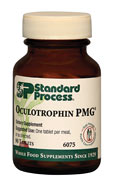Carotenoids and Your Eyes

|
Your eyes are now subjected too much higher levels of oxidation than our ancestors experienced. |
Not only are there more contaminants in today's environment, but the depletion of our ozone layer is causing more intense sunlight than ever before, which directly exposes your eyes and skin to more free radicals.
In addition, as you age, your body loses some of its ability to produce the high levels of antioxidants it needs to counter the everyday assault on your tissues and organs by pollution, contaminants in food and water, household chemicals, pharmaceutical drugs, and high levels of stress.
Free radicals are responsible for the most eyes conditions. Free radicals are the natural byproducts of metabolism. These highly reactive chemicals cause oxidation, which in turn causes aging. In a healthy eye, the body removes these free radicals by delivering "free radical scavengers" to the eyes in the form of nutrients such as vitamin C and glutathione. In addition, as the lens of the eye ages, it hardens and loses its ability to focus. This process is similar to hardening of the arteries.
Vitamin C, vitamin E (mainly tocopherols), glutathione, and a variety of carotenoids are present in lens tissue and in the fluid that surrounds it. Lack of these antioxidants can cause eyes conditions to occur more frequently.

|
Carotenoids are antioxidant compounds that neutralize dangerous free radicals in your body, including your eyes. |
Carotenoids are the compounds in your foods that give you that vibrant abundance of color from green grasses to red beets, to the spectacular yellows and oranges of your bell peppers as well as all of the beautiful flowers in your garden.
Almost all living things obtain their colors from natural pigments. Beyond their visual glory, these pigments have deeper value in that; they carry out a variety of important biological functions. They are critical to the photosynthetic process and protect the plant and organisms from damage by light and oxygen.
- How many groups carotenoids are classified
- What is your best source of Zeaxanthin
- What is your best source of Lutein
- What is Astaxanthin and in what foods
- Why Astaxanthin is so valuable











